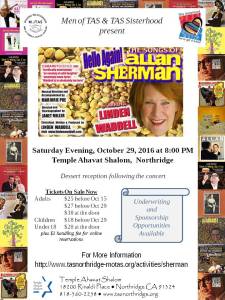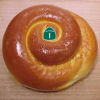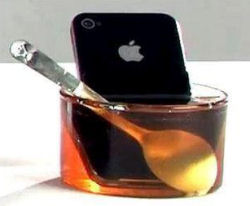
 Is history what you believe it to be? If you honestly believe that history happened a particular way, does that make it true? Is it acceptable to always slant history a certain way to support a particular argument? Do the facts define history, irrespective of what anyone says history to be?
Is history what you believe it to be? If you honestly believe that history happened a particular way, does that make it true? Is it acceptable to always slant history a certain way to support a particular argument? Do the facts define history, irrespective of what anyone says history to be?
Sounds like some questions relevant to this political silly season of 2016. Is it?
There was a man who said that particular historical events never happened. He said that others happened in a particular way that supported his view of reality. This man quoted numerous historical sources, and interpreted the evidence in such a way as to build a case to support his views and his arguments. Never mind that the facts and historians across the globe said otherwise. He truly believed that what everyone else knew as reality never happened, and was so ensconced in that belief that he could not see the facts.
However, there was a courageous woman who took him — and other similar believers on. She she called him out for his lies and his falsification. She believed that facts define what is true, not opinion, and a confluence of the facts is irrefutable evidence.
Again, sounds like someone this presidential year.
But the man in question didn’t like being called out for his lies and falsifications. He felt it was hurting his reputation, and was impacting his ability to conduct business deals. He wanted to take her down; he took this personally. He sued her for libel in court, and forced her to prove that he was lying.
Again, sounds familiar if you saw Sunday night’s debate. Only I’m not talking about Decision 2016. The man in question is David Irving (and no, I’m not linking to his website), and the woman in question is Dr. Deborah Lipstadt, the Dorot Professor of Modern Jewish History and Holocaust Studies at Emory University. The trial did happen: Irving sued Lipstadt in British Court for Libel, based on her writings about Irving in her book “Denying the Holocaust: The Growing Assault on Truth and Memory“. Lipstadt subsequently wrote a book about her experiences with the trial, “History on Trial: My Day in Court with a Holocaust Denier” (recently rereleased). This book was adapted into a screenplay, which is hitting the big screens this month as “Denial“.
Now, back when I was in college, I knew Dr. Lipstadt. I was a Math/Computer Science major, and we had this requirement called the Breadth Requirement. This meant we had to take courses out of our area in order to graduation. I discovered Jewish Studies was an option for Humanities. Dr. Lipstadt, who was a professor at UCLA in the Jewish Studies Department at the time, taught a number of Jewish Studies courses. As a result, I took a number of courses from her on subjects such as Zionism and Antisemitism (turning in papers printed via nroff on the Diablo 1620 in the CS Department). I’ve been in touch with her off and on since then. When Dr. Lipstadt began to talk about this movie on her Facebook wall, my interest was piqued. I was just coming off two years as president of my synagogue men’s club, and I thought this would be a great event. So I found a date, coordinated a meeting, and picked up a copy of the book so I could prepare some discussion questions. Yesterday afternoon I lead a group of 19 down to the AMC Woodland Hills for the afternoon showing.
The movie tells essentially the story that is in the book: the setup of the conflict, receipt of the lawsuit, preparation of the case, the trial, and the aftermath. It is in many ways an extreme condensation of the book — the book covers the preparation for the trial in extreme detail (and you can see all that detail at the Holocaust Denial on Trial website, which has add the details and the trial transcipts, among other resources), and provides details for almost every day of the trial. Yet such condensation is required in the process of making the film. For those seeing the film, there is one important fact noted in the republished book’s foreward: Every word in the trial scenes is verbatim. The screenwriters did not modify those words, because to do so would be to go against the spirit of the movie.
Looking at the movie as a movie, I thought it was very good (and so did everyone else in my group). It provided sufficient context to the book, presented the discovery in an engaging way, and captured the conflicts of the trial — and the difficulties that Dr. Lipstadt faced in having to stay quiet — well. It provided just enough information on the British legal system for American viewers to understand the context. As a live theatre goer, I noticed the cinematography, and I thought it did a very good job of building the mood, especially in the scenes related to Auschwitz. It wasn’t maudlin; it didn’t well on the specifics and the cruelties of the Holocaust. The focus was the trial.
However, as I watched the movie (with the book fresh in my head), I couldn’t help but notice what was missing. The movie gave the impression that the trial was centered around Auschwitz and Irving’s claims thereabout. The discovery process of the case was much more extensive, looking at all of Irving’s writings and the historical areas they covered. When in the movie they enter the courtroom and see rows and rows of binders on the walls, those aren’t just Irving’s diaries. Those are all of the material that was discovered for the trial. The screenwriter also omitted a number of critical aspects of British court (likely for the sake of time and story): that all materials discovered are shared, and that there are to be no “surprises” during the trial. Further, it didn’t note that if Irving lost the trial, he became financial responsible for all of Dr. Lipstadt’s court costs. It also didn’t note the questions related to Penguin UK’s involvement in the trial.
With respect to the trial itself, there were numerous areas that, again, were condensed out for the sake of the cinematic demonstration. There were numerous aspects of Auschwitz that were hinted at in the movie, but were much more extensive during the trial, such as the ramp to the “delousing room” and the specifics of why Leichter’s analysis of the concrete was flawed. There were aspects of the construction of the facilities. Then there were other areas that were omitted entirely, such as Irving’s claims about the Eastern Front and the massacres of Jews there.
Again, I understand the cinematic need for the omissions. There was one omission that was more problematic to me. A key emphasis of the book is the notion of confluence of history — the notion that factual history arises from facts from multiple sources and multiple datapoints all pointing to the same conclusion. This was Irving’s fatal flaw: he drew facts from one or two sources, interpreting them as he would, and ignoring numerous other sources that contradicted him. That’s not what a historian does. Once examines as many sources as possible, and where the facts lead you are the truth. This notion of confluence of history is extremely important this election season; just this weekend we had a candidate claiming that a particular behavior wasn’t representative, when the confluence of facts pointed to the opposite conclusion. This same candidate identified a few examples about their opponent and claimed it demonstrated a significant pattern when, again, that conclusion wasn’t supported by a confluence of the facts.
However, the movie did leave the audience with an extremely important point, which was also the moral (so to speak) of the book: History is not just what we say it is. One cannot say: this is how I honestly remember things, this is what I believe, and therefore it is true. Having honest antisemitic beliefs, and believing that the Holocaust never happened does not change the reality that it happened. That is such an important point to make this fall, where we have entire political parties insisting that history happened one particular way to support their point of view, completely ignoring the fact that the confluence of the evidence says otherwise.
The performances in the movie were uniformly strong. Timothy Spall, who to me was Wormwood from Harry Potter but whom others recall better as Churchill in The Kings Speech, does innocent evil so well. Rachel Weitz did a great job becoming Dr. Lipstadt — she got the vocal mannerisms down well, although her look didn’t quite fit my memory. The performance was excellent. Tom Wilkinson was strong as Richard Rampton, the lead Barrister on the case, with great support from Andrew Scott as Anthony Julius, the lead solicitor.
This being a movie, I’m not going to list all the credits as I do with a theatre production; you can see them all on the IMDB page.
Note that the underlying topic of the movie: antisemitism (always, as Dr. Lipstadt taught, written without the hyphen), is still far too prevalent. You’ll see it in comments on the book and on the movie. You’re seeing it in this political campaign, from the memes retweeted by the Trump campaign (Pepe the Frog was recently designed as a hate symbol by the ADL, and there was Trump’s earlier tweet) to the most recent debate, with the repeated references to Sydney Blumenthal. These are what are called “dog whistles” — silent signals that most people don’t recognize, but that white nationalists pick up to indicate messages to them. The denial of history — the bending of facts to make a particular point — is so timely this political season.
One other interesting comparison. One incident show in the movie, which was related in the book as well, concerns how Irving demonstrated he was not a racist. Quoting from the book:
Irving assured the reporter, Kate Kelland, that he could demonstrate he was not a racist by the fact that his “domestic staff” had included a Barbadian, a Punjabi, a Sri Lankan, and a Pakistani. They were “all very attractive girls with very nice breasts”.
Shades of a certain presidential candidates and comments made on a bus.
“Denial” is a movie I strongly recommend to all. It is in limited release now, expanding some on October 14, and going nationwide on October 22. See it. Learn from it. Get the book and visit the website and learn more.
* * *
Ob. Disclaimer: I am not a trained theatre critic; I am, however, a regular theatre audience member. I’ve been attending live theatre and concerts in Los Angeles since 1972; I’ve been writing up my thoughts on theatre (and the shows I see) since 2004. I do not have theatre training (I’m a computer security specialist), but have learned a lot about theatre over my many years of attending theatre and talking to talented professionals. I pay for all my tickets unless otherwise noted. I am not compensated by anyone for doing these writeups in any way, shape, or form. I currently subscribe at Cabrillo Music Theatre (FB), the Hollywood Pantages (FB), Actors Co-op (FB), the Chromolume Theatre (FB) in the West Adams district, and a mini-subscription at the Valley Performing Arts Center (VPAC) (FB). The Chromolume 2017 season looks particularly good: Zanna Don’t (Tim Acito, January 13 – February 5), Hello Again (Michael John LaChiusa, May 5- May 28), and Pacific Overtures (Stephen Sondheim, September 15 – October 8) — all for only $60). Past subscriptions have included The Colony Theatre (FB) (which went dormant in 2016), and Repertory East Playhouse (“REP”) (FB) in Newhall (which entered radio silence in 2016). Through my theatre attendance I have made friends with cast, crew, and producers, but I do strive to not let those relationships color my writing (with one exception: when writing up children’s production, I focus on the positive — one gains nothing except bad karma by raking a child over the coals). I believe in telling you about the shows I see to help you form your opinion; it is up to you to determine the weight you give my writeups.
Upcoming Shows: Next weekend has yet another VPAC event: An Evening with Kelli O’Hara on Friday, as well as tickets for Evita at Cabrillo Music Theatre (FB) on Saturday. The following weekend brings Turn of the Screw at Actors Co-op (FB) on October 22 and the new Tumbleweed Festival (FB) on October 23. The last weekend of October brings Linden Waddell’s Hello Again, The Songs of Allen Sherman at Temple Ahavat Shalom (a joint fundraiser for MoTAS and Sisterhood).
 Interrupting this recap for a word from a sponsor: Linden Waddell’s Hello Again, The Songs of Allen Sherman at Temple Ahavat Shalom is open to the community, and is a joint fundraiser for MoTAS and Sisterhood. Please tell your friends about it. I’m Past President of MoTAS, and I really want this to be a success. Click on the flyer to the right for more information. It should be a really funny night.
Interrupting this recap for a word from a sponsor: Linden Waddell’s Hello Again, The Songs of Allen Sherman at Temple Ahavat Shalom is open to the community, and is a joint fundraiser for MoTAS and Sisterhood. Please tell your friends about it. I’m Past President of MoTAS, and I really want this to be a success. Click on the flyer to the right for more information. It should be a really funny night.
Oh, and if that wasn’t enough, October is also the North Hollywood Fringe Festival (FB), although I doubt if we’ll have time for any shows. November will bring Hedwig and the Angry Inch at the Hollywood Pantages (FB); a Day Out With Thomas at Orange Empire Railway Museum (FB) [excuse me, “Southern California Railway Museum”]; the Nottingham Festival (FB); and possibly Little Women at the Chance Theatre (FB) in Anaheim. We still have some open weekends in there I may book. We close out the year, in December, with the CSUN Jazz Band at the Annual Computer Security Applications Conference (ACSAC), Amalie at the Ahmanson Theatre (FB), The King and I at the Hollywood Pantages (FB); an unspecified movie on Christmas day; and a return to our New Years Eve Gaming Party.
As always, I’m keeping my eyes open for interesting productions mentioned on sites such as Bitter-Lemons, Musicals in LA, @ This Stage, Footlights, as well as productions I see on Goldstar, LA Stage Tix, Plays411 or that are sent to me by publicists or the venues themselves. Note: Although we can’t make it, I also recommend the 10th Anniversary Production of The Brain from Planet X at LACC. See here for the Indiegogo. Lastly, want to know how to attend lots of live stuff affordably? Take a look at my post on How to attend Live Theatre on a Budget.
 We’ve just come off of a far-too-long immersion in the echo chambers of the Internet. We’ve hidden in our Liberal or Conservative cocoons, reading our news sources, looking at our favorite satire site, being gullible enough to fall for our fake news sites, and listening to our friends extoll the virtues of our views. We’ve also poopooed or discounted their news sources, found their satire sites not funny, wondered how they could have such fake news written, and gotten to the point of defriending those that disagreed with our view. We probably believe that these chambers are the fault of, and started with, Facebook.
We’ve just come off of a far-too-long immersion in the echo chambers of the Internet. We’ve hidden in our Liberal or Conservative cocoons, reading our news sources, looking at our favorite satire site, being gullible enough to fall for our fake news sites, and listening to our friends extoll the virtues of our views. We’ve also poopooed or discounted their news sources, found their satire sites not funny, wondered how they could have such fake news written, and gotten to the point of defriending those that disagreed with our view. We probably believe that these chambers are the fault of, and started with, Facebook.

 Good news: This post is not about Decision 2016!
Good news: This post is not about Decision 2016! As the sun goes down today, Yom Kippur comes to an end. Yom Kippur is a day to atone for what you have done wrong in the previous year, and to commit yourself to make an honest attempt to do better next year. If Donald Trump wins, I know I will regret that I didn’t do enough to convince you, so let’s plow through some saved articles about The Donald. In the spirit of the day, these articles explore what might be good for us Jews in this election.
As the sun goes down today, Yom Kippur comes to an end. Yom Kippur is a day to atone for what you have done wrong in the previous year, and to commit yourself to make an honest attempt to do better next year. If Donald Trump wins, I know I will regret that I didn’t do enough to convince you, so let’s plow through some saved articles about The Donald. In the spirit of the day, these articles explore what might be good for us Jews in this election.
 Is history what you believe it to be? If you honestly believe that history happened a particular way, does that make it true? Is it acceptable to always slant history a certain way to support a particular argument? Do the facts define history, irrespective of what anyone says history to be?
Is history what you believe it to be? If you honestly believe that history happened a particular way, does that make it true? Is it acceptable to always slant history a certain way to support a particular argument? Do the facts define history, irrespective of what anyone says history to be?
 On Sunday, October 9th,
On Sunday, October 9th, 

 Another traditional food is a
Another traditional food is a  Last night, we had a Shabbabaque at Temple (“Shabbat” + “Barbeque”). There was a bunch of food leftover, and so I brought some home — the sliced tomatoes and roasted zucchini — and threw it into a crockpot. That’s a great thing to do with leftovers: make a stew (and I intend to suggest formalizing that next year*). Just like at the Shabbabaque, I’ve got loads of leftovers — onsies and twosies of news articles — that don’t make a coherent dish. Perhaps they’ll make a good stew. What do you think?
Last night, we had a Shabbabaque at Temple (“Shabbat” + “Barbeque”). There was a bunch of food leftover, and so I brought some home — the sliced tomatoes and roasted zucchini — and threw it into a crockpot. That’s a great thing to do with leftovers: make a stew (and I intend to suggest formalizing that next year*). Just like at the Shabbabaque, I’ve got loads of leftovers — onsies and twosies of news articles — that don’t make a coherent dish. Perhaps they’ll make a good stew. What do you think?